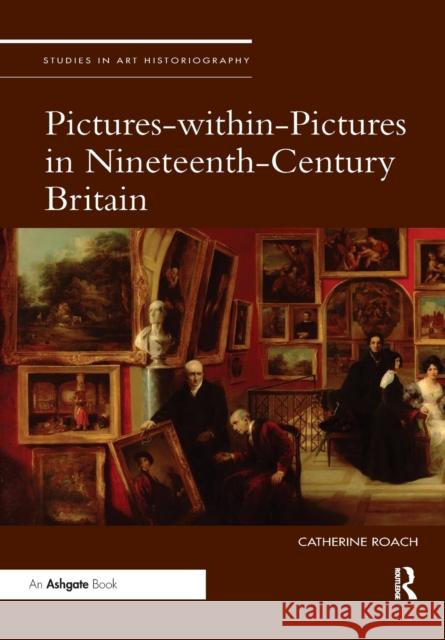Pictures-Within-Pictures in Nineteenth-Century Britain » książka
Pictures-Within-Pictures in Nineteenth-Century Britain
ISBN-13: 9781138353091 / Angielski / Miękka / 2018 / 218 str.
Pictures-Within-Pictures in Nineteenth-Century Britain
ISBN-13: 9781138353091 / Angielski / Miękka / 2018 / 218 str.
(netto: 230,72 VAT: 5%)
Najniższa cena z 30 dni: 216,55
ok. 30 dni roboczych.
Darmowa dostawa!
Repainting the work of another into one's own canvas is a deliberate and often highly fraught act of reuse. This book examines the creation, display, and reception of such images. Artists working in nineteenth-century London were in a peculiar position: based in an imperial metropole, yet undervalued by their competitors in continental Europe. Many claimed that Britain had yet to produce a viable national school of art. Using pictures-within-pictures, British painters challenged these claims and asserted their role in an ongoing visual tradition. By transforming pre-existing works of art, they also asserted their own painterly abilities. Recognizing these statements provided viewers with pleasure, in the form of a witty visual puzzle solved, and with prestige, in the form of cultural knowledge demonstrated. At stake for both artist and audience in such exchanges was status: the status of the painter relative to other artists, and the status of the viewer relative to other audience members. By considering these issues, this book demonstrates a new approach to images of historic displays. Through examinations of works by J.M.W. Turner, John Everett Millais, John Scarlett Davis, Emma Brownlow King, and William Powell Frith, this book reveals how these small passages of paint conveyed both personal and national meanings.











